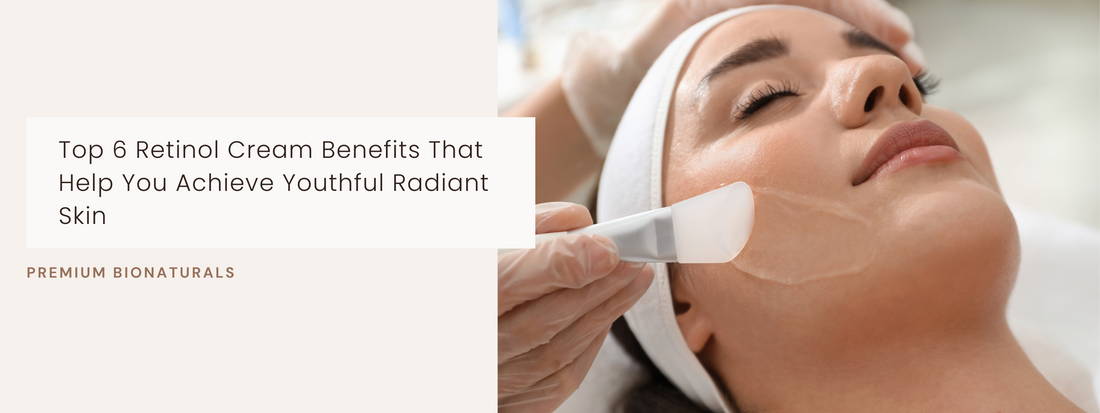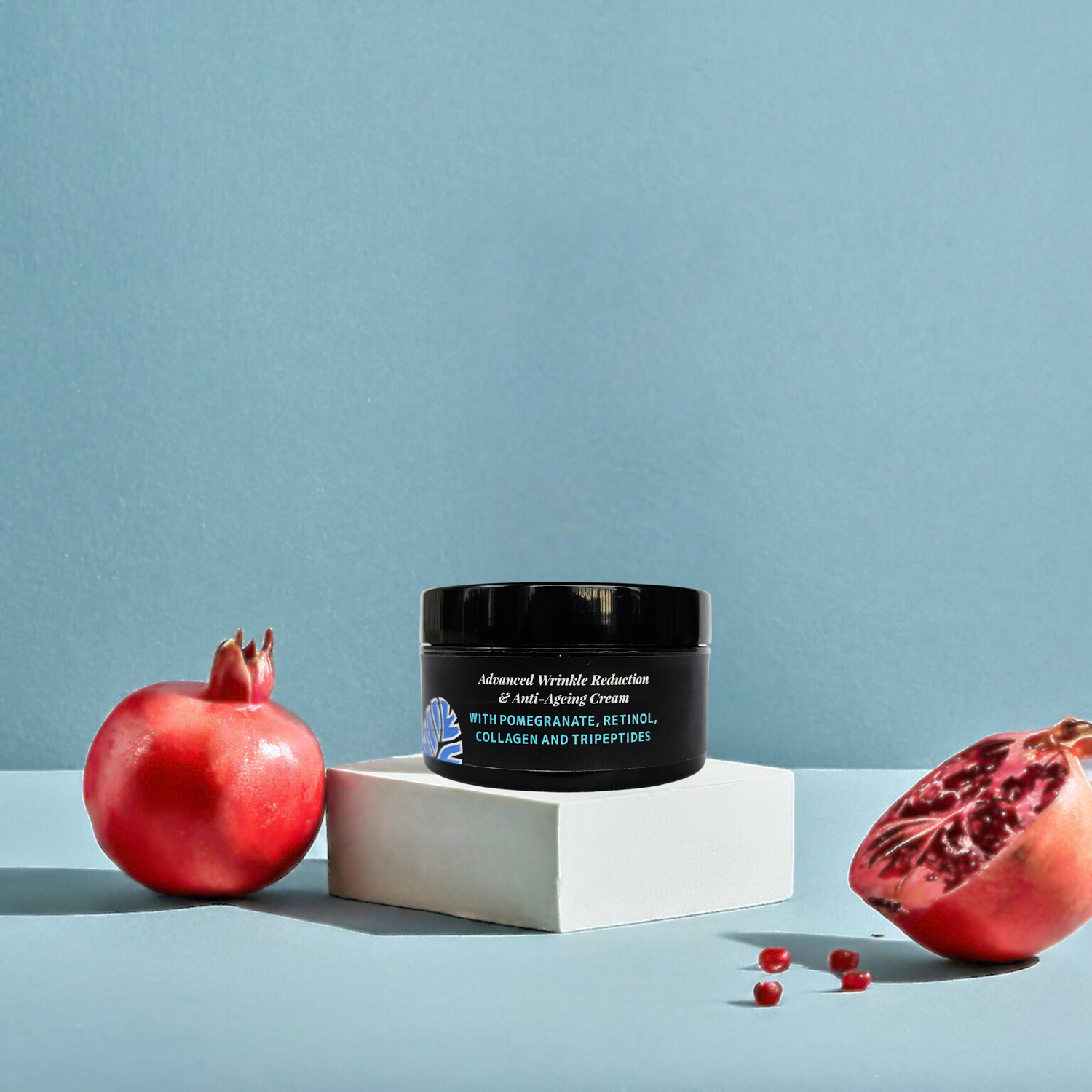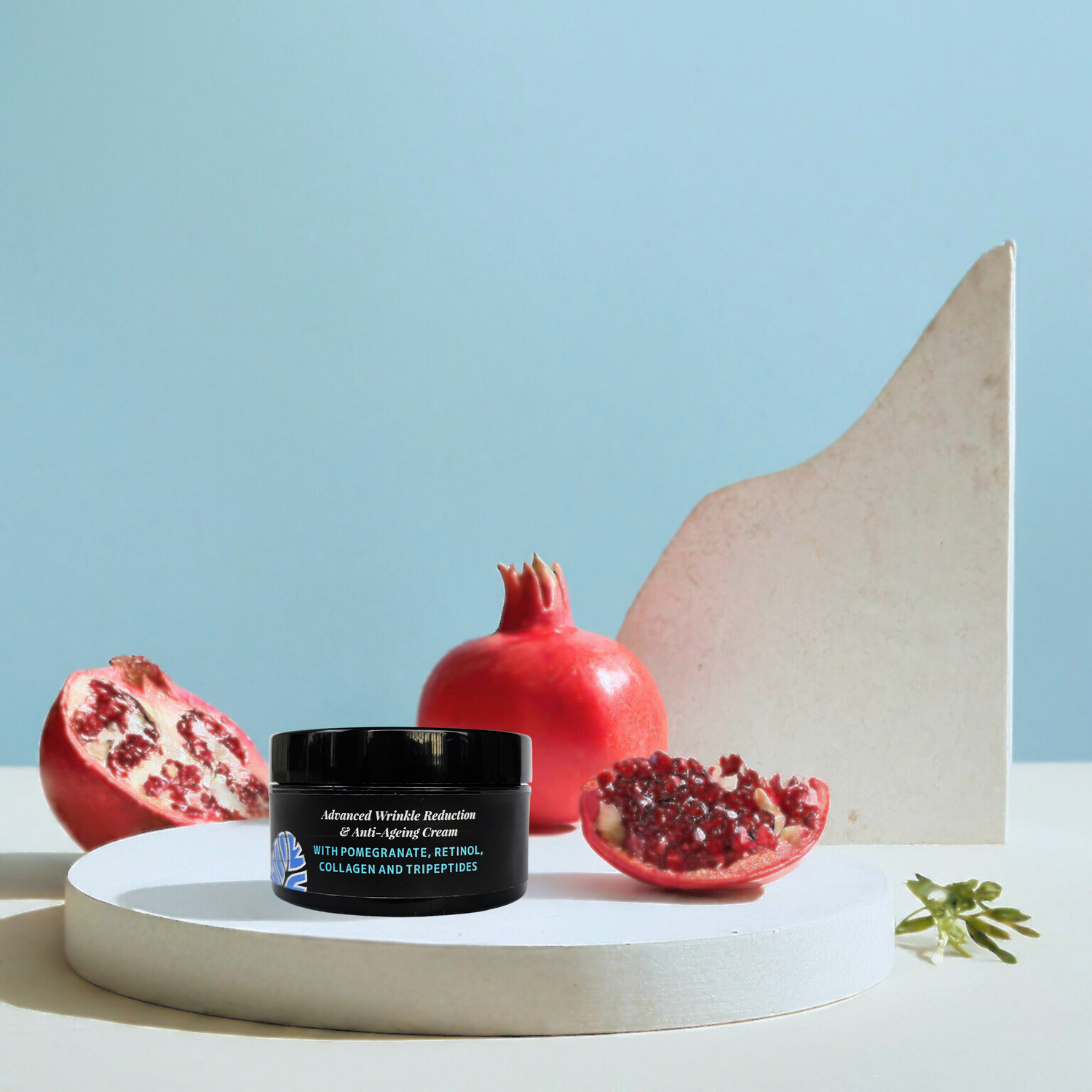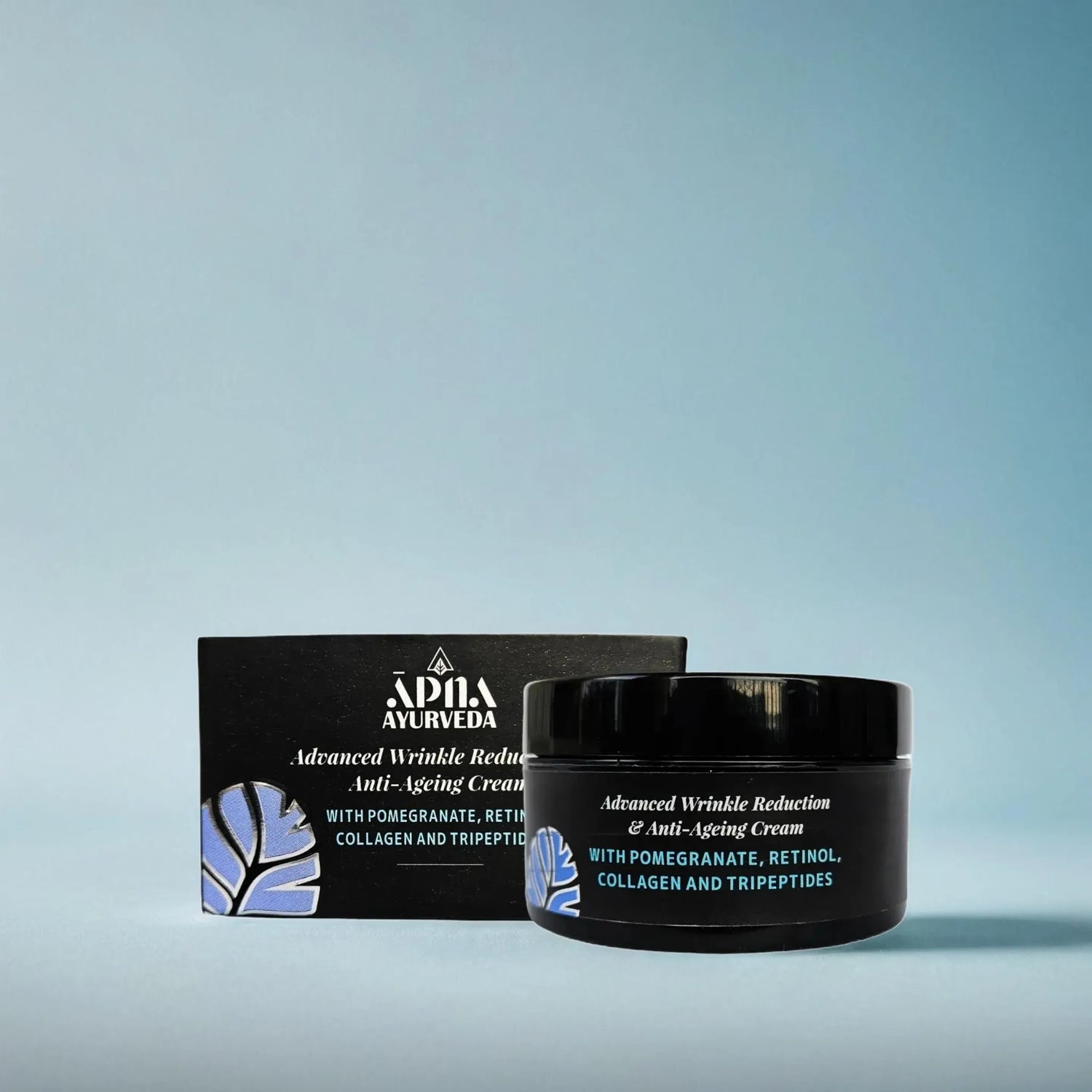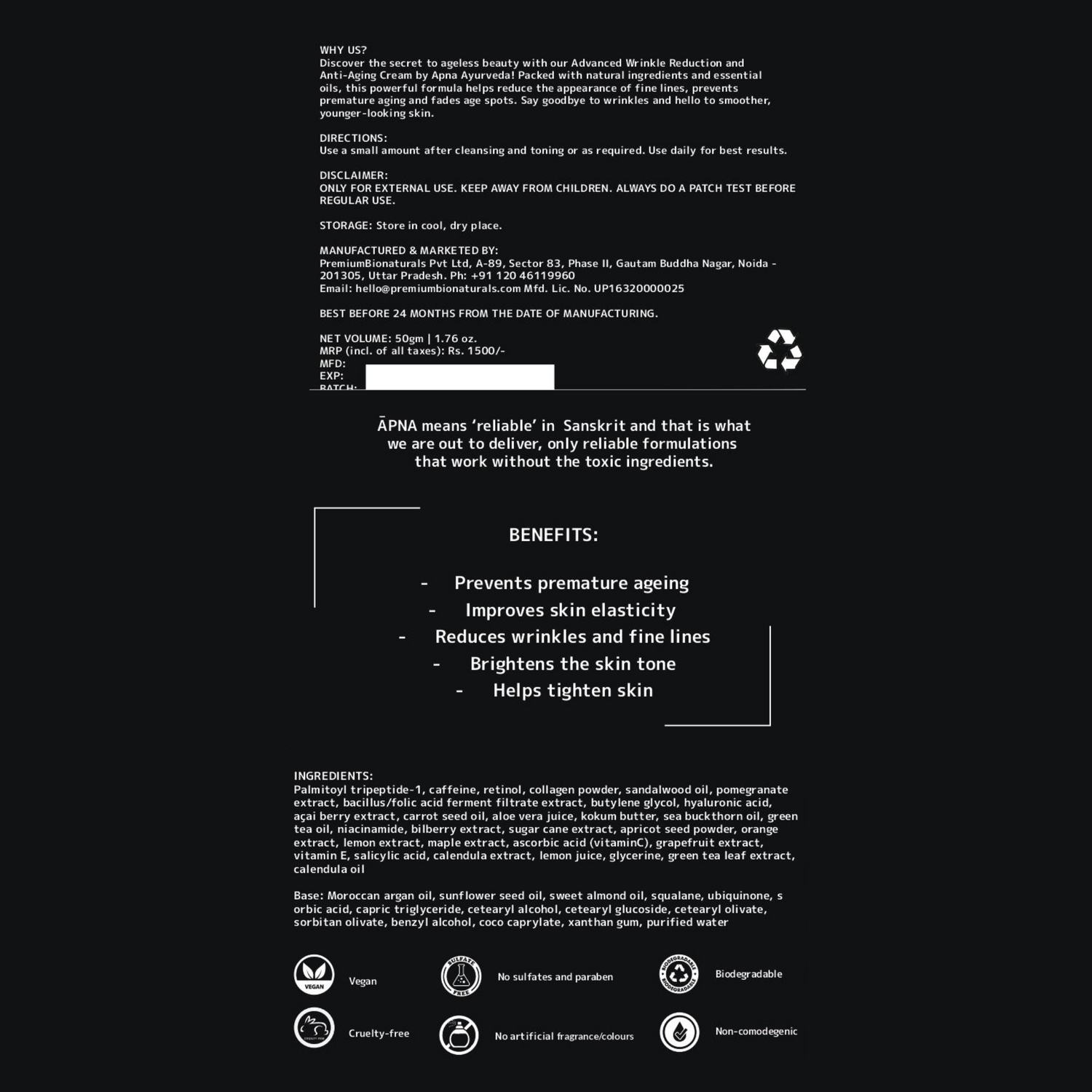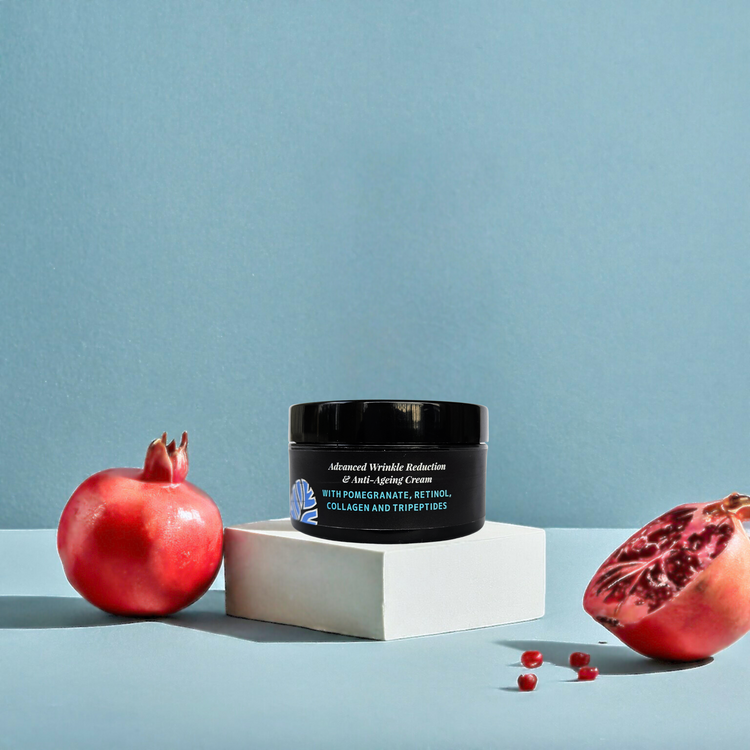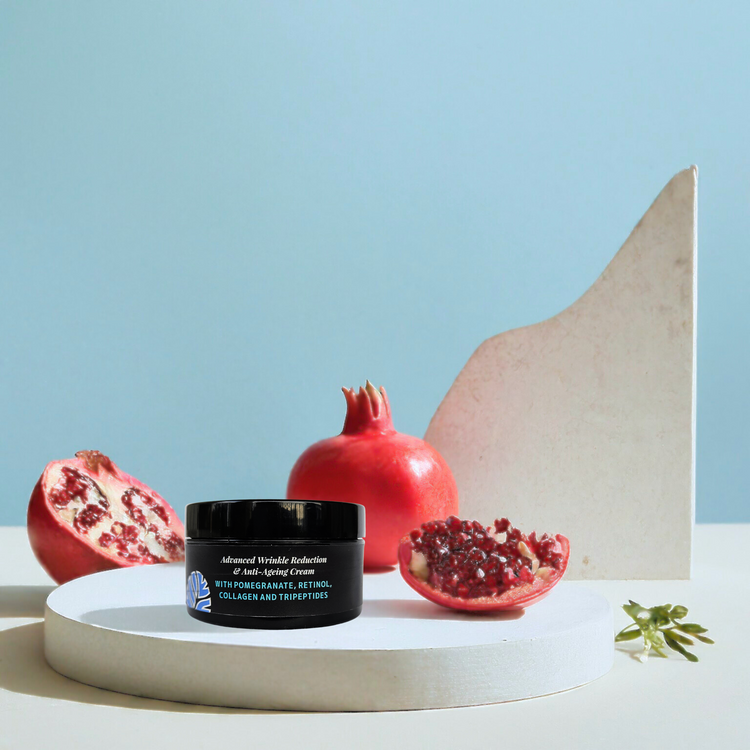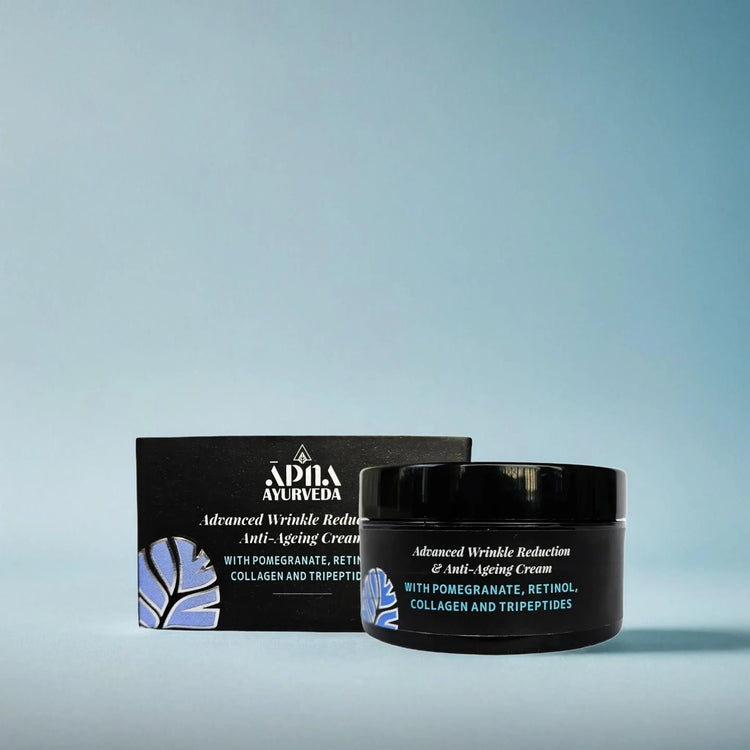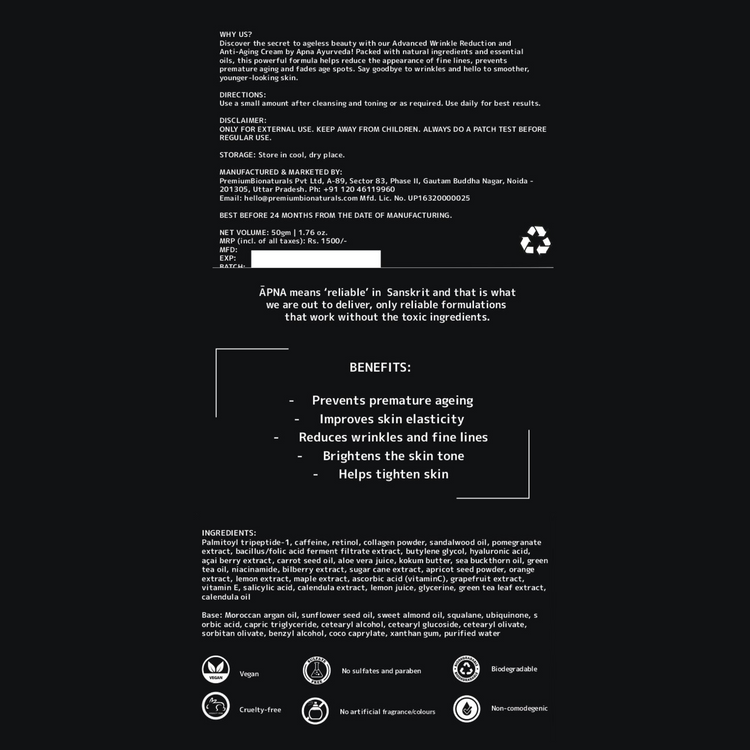When it comes to skincare, few ingredients are as celebrated (and dermatologist-approved) as retinol. Known as a gold-standard ingredient in anti-ageing, retinol is a form of vitamin A that can dramatically transform your skin when used consistently and correctly. Whether you are dealing with acne, dull skin, or signs of ageing, a good retinol-based night cream might just be your new BFF.
From smoothing out wrinkles to brightening dull skin, understanding retinol cream benefits is key to unlocking your best complexion yet. But what is retinol, and why are all the experts recommending it? So, let’s dive into the benefits of retinol night cream, how retinol works, and whether OTC or prescription options are right for you
1. Fewer Wrinkles & Fine Lines
One of the top retinol uses for skin is that it helps to tighten and stretch your skin by enhancing the protein collagen. It reduces the appearance of wrinkles and fine lines over time and increases the elasticity of the skin and makes your skin young and radiant.
It has the ability to minimise signs of ageing. Using retinol night cream for oily skin daily can give you a rested look even when you are not sleeping well. No wonder dermatologists swear by retinoids for wrinkles as one of the most effective treatments. For a targeted option, try the Advanced Wrinkle Reduction & Anti-Ageing Cream with Pomegranate, Retinol & Collagen Tripeptides —a potent blend that helps smooth fine lines, improve elasticity, and restore youthful radiance.

Want more anti-ageing advice? Don’t miss our blog on Top 6 Tips to Reduce Fine Lines and Reverse Skin Ageing for dermatologist-approved lifestyle and skincare strategies.
2. Smoother Skin Texture

The benefits of vitamin A on skin include faster cell turnover, which means retinol helps shed dead skin cells and reveal fresher, smoother skin underneath. Retinol-based night cream evens out coarse skin texture by encouraging cell turnover.
It clears pores, softens patches of coarse skin, and leaves your skin smooth. Whether you’re dealing with rough patches, clogged pores, or uneven skin texture, retinol makes a noticeable difference and improves your skin quality, even without the use of other cosmetics.
3. Brighter, More Even Tone

One of the biggest retinol cream benefits is improved radiance and stimulates skin cell turnover, resulting in an exfoliating effect. By fading pigmentation, sunspots, and acne marks, retinol helps brighten your complexion.
The benefits of retinol night cream really shine here—skin looks more even-toned and youthful when you wake up. With retinol, dull and dry skin seems to be new, brighter, and more even-toned skin with increased collagen and elastin levels. The thicker skin is firmer and smoother, with fewer imperfections overall.
4. Helps with Acne & Pigmentation

Retinol has been shown to reduce the visibility of pimples on the skin and prevent the formation of new spots and acne blemishes. One way retinol can improve the appearance of acne is by encouraging cell turnover. Acne forms when a buildup of dead skin cells and oil accumulates inside the hair follicles on your face. Retinol causes those cells to shed and be replaced more quickly.
Beyond anti-ageing, retinol is also effective for acne-prone skin. It unclogs pores, reduces inflammation, and helps fade post-acne scars. This makes retinol uses for skin versatile—targeting both breakouts and the marks they leave behind.
5. Works for Dry Skin with the Right Formula
If you’ve ever felt flakiness or tightness, you might wonder if retinol is safe for dry skin. The answer is yes—look for hydrating formulas with added ceramides, glycerin, or hyaluronic acid. These retinol for dry skin creams balance renewal with moisture, making them suitable even for sensitive types.
6. Multiple Options: Retinol vs Retinoid vs Retinal

Confused about all the names? You’re not alone. With so many forms of vitamin A on the market—retinoids, retinol, and retinal—it’s easy to feel overwhelmed. Each has its own strength, speed, and suitability depending on your skin type and goals. Here’s a quick breakdown to help you understand the differences and choose what’s right for you:
-
Retinoid vs Retinol: Retinoids are prescription-strength, more potent, and deliver faster results—ideal for stubborn wrinkles or acne. Retinol, found OTC, is gentler and better for beginners.
-
Retinol vs Retinal: Retinal works faster than retinol because it needs fewer conversions in the skin, but it may cause more irritation. Retinol is a safe starting point if you’re new to vitamin A.
Whether you choose OTC retinol vs prescription depends on your skin concerns—mild aging and texture issues respond well to OTC, while deeper wrinkles and acne may need dermatologist-prescribed retinoids.
How Retinol Works (and How to Use It Safely)
Learning how retinol works will help you get the most out of it. Retinol increases cell turnover and collagen production, which means it can cause dryness or irritation at first.
Pro Tips for Safe Use:
-
Start 2–3 times a week, then build up gradually.
-
Always apply at night (retinol is light-sensitive).
-
Pair with moisturiser to reduce dryness.
-
Never skip sunscreen—retinol makes your skin more sun-sensitive.
Frequently asked questions
Q1) What are the main retinol cream benefits for daily skincare?
A) Reducing fine lines, improving texture, brightening tone, treating acne, and boosting collagen production.
Q2) How does retinol work to improve skin texture and tone?
A) It speeds up cell turnover and stimulates collagen, which smooths rough patches and evens pigmentation.
Q3) Is retinol safe for dry skin types?
A) Yes—opt for hydrating formulations with ceramides or hyaluronic acid to prevent flakiness.
Q4) What’s the difference between retinol and prescription retinoids?
A) Retinoids are stronger, faster-acting, and available by prescription. Retinol is gentler and ideal for beginners.
Q5) Which is better: Retinol vs Retinal for beginners?
A) Retinol is usually safer for beginners, while retinal is more potent but potentially irritating.
Q6) Can I use a retinol night cream every day?
A) Start slow—2–3 nights a week—and gradually increase to nightly use as your skin builds tolerance.
Retinol is more than just a trend—it’s a proven powerhouse. Whether you’re new to skincare or looking to refine your routine, the retinol cream benefits make it a worthy addition for smoother, firmer, radiant skin.
For those with dry or sensitive skin, pairing retinol for dry skin with hydrating ingredients ensures comfort and effectiveness. Most importantly, knowing how retinol works and using it consistently with proper sun protection can transform your skincare game. With patience and the right approach, retinol can help you achieve youthful, radiant skin that glows with health.

